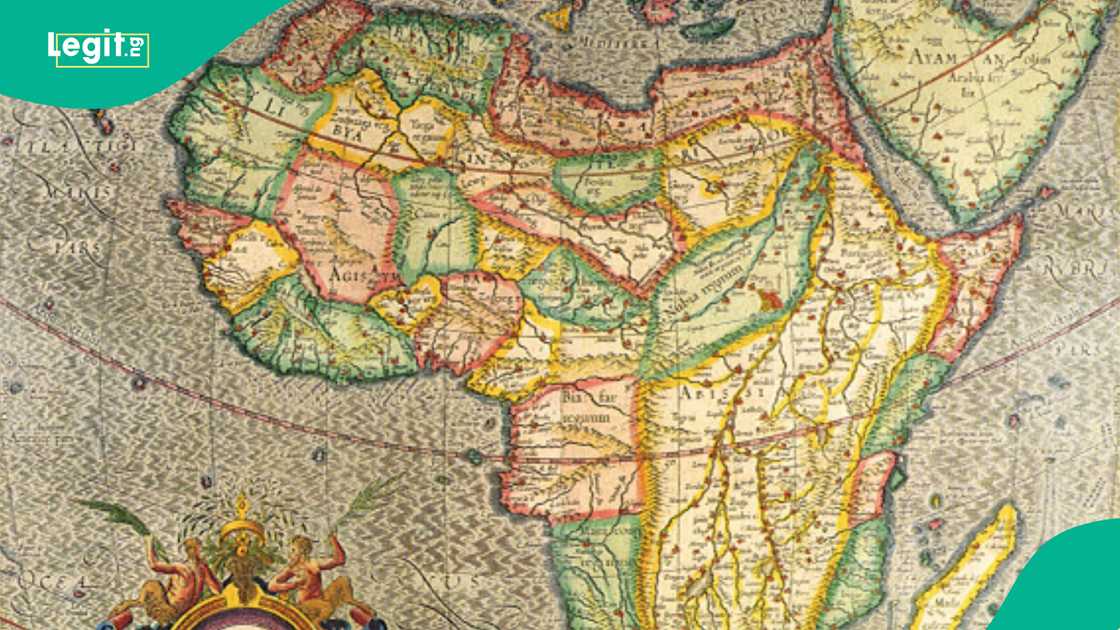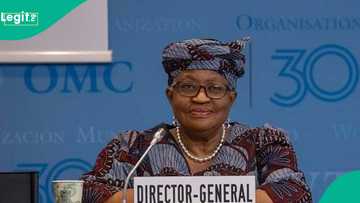55 Countries Want Widely-Used African Map to Be Removed and Replaced, Reason Mentioned
- The African Union has endorsed a campaign to replace the distorted Mercator map with one that accurately reflects Africa’s true size
- Advocates say the centuries-old projection misrepresents Africa, fuelling stereotypes and undermining the continent’s global standing
- The AU’s support signals a push for educational reform and international recognition of Africa’s rightful place on the world map
The African Union (AU) has formally endorsed a campaign calling for the global abandonment of the Mercator projection in favour of a more accurate map that reflects Africa’s true scale.
The move marks a significant step in a growing effort to challenge long-standing cartographic distortions that critics say have perpetuated harmful stereotypes and misinformed generations.

Source: Getty Images
Mercator map criticised for misrepresenting Africa’s size
Originally developed in the 16th century by Flemish cartographer Gerardus Mercator, the Mercator projection was designed to aid maritime navigation. However, its mathematical structure dramatically enlarges regions near the poles, such as North America and Greenland, while shrinking equatorial continents like Africa and South America.

Read also
50m dollars global fund lands in Nigeria: Okonjo-Iweala backs women entrepreneurs in digital trade
“It might seem to be just a map, but in reality, it is not,” said Selma Malika Haddadi, deputy chair of the African Union Commission, in an interview with Reuters. Haddadi argued that the Mercator projection contributes to a false perception of Africa as “marginal”, despite being the world’s second-largest continent by area and home to over one billion people. She added that such misrepresentations influence media narratives, educational materials, and policymaking.
Correct the map campaign gains momentum
The AU’s endorsement comes amid renewed advocacy from the Correct the Map campaign, spearheaded by Africa No Filter and Speak Up Africa. The initiative urges governments, schools, and international organisations to adopt the Equal Earth projection—a 2018 alternative designed to more accurately represent landmass proportions.
“The current size of the map of Africa is wrong,” said Moky Makura, executive director of Africa No Filter. “It’s the world’s longest misinformation and disinformation campaign, and it just simply has to stop.”

Read also
IyeOgé: Zig Okungbowa set to unveil Africa's first AI-integrated luxury e-commerce platform
Fara Ndiaye, co-founder of Speak Up Africa, highlighted the psychological impact of distorted maps on African children, noting that early exposure to the Mercator projection could affect their sense of identity and pride. “We’re actively working on promoting a curriculum where the Equal Earth projection will be the main standard across all [African] classrooms,” Ndiaye said. She expressed hope that global institutions, including those based in Africa, would follow suit.
AU pushes for global map reform
Haddadi confirmed that the AU would advocate for broader adoption of the Equal Earth projection and initiate discussions with its 55 member states to coordinate collective action. She said the campaign aligns with the union’s broader mission to “reclaim Africa’s rightful place on the global stage”, particularly as calls for reparations for colonialism and slavery continue to grow.
Despite mounting criticism, the Mercator projection remains widely used in schools and by tech companies. Google Maps transitioned to a 3D globe view on desktop in 2018, but users can still revert to the Mercator format.
The AU’s backing adds institutional weight to a decades-old debate, potentially reshaping how the world visualises Africa—and, by extension, how it values the continent’s role in global affairs.
Source: Legit.ng


